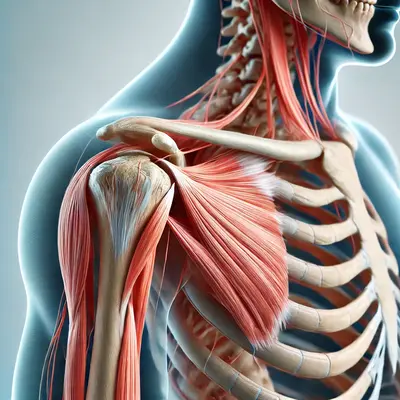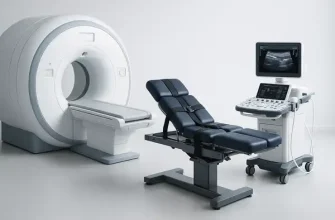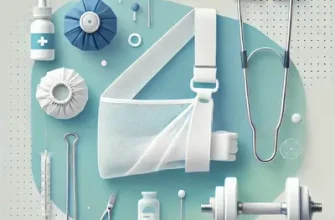A pinched nerve in the shoulder can be an extremely frustrating condition that impacts both daily activities and quality of life. It’s important to recognize the symptoms, understand the risk factors, and explore both conventional and emerging treatment options to find effective relief. In this article, we’ll dive deep into the causes and treatment of a pinched nerve in the shoulder, supported by recent statistics, facts, and practical examples.
What Is a Pinched Nerve?
A pinched nerve occurs when there is excessive pressure on a nerve by surrounding tissues, such as bones, muscles, or tendons. In the shoulder, this pressure may result from various factors, including injury, repetitive movements, or degenerative changes like arthritis. The condition leads to pain, numbness, tingling, or weakness in the shoulder, arm, or hand.
Prevalence and Impact
Pinched nerves are more common than one might think. Studies show that roughly 85 out of every 100,000 adults in the United States experience symptoms related to pinched nerves each year. Shoulder nerve compression accounts for around 20% of these cases. Notably, the prevalence of pinched nerves tends to increase with age, particularly after 40, when degenerative changes in the spine and joints become more common.
Occupations that require repetitive shoulder movements, such as manual laborers, athletes, and office workers, are at higher risk. Research indicates that individuals engaged in overhead activities, like carpenters or athletes involved in sports like swimming and tennis, have a 30% greater likelihood of developing a pinched nerve in the shoulder.
Key Symptoms of a Pinched Nerve in the Shoulder
Recognizing the symptoms of a pinched nerve in the shoulder is crucial for early intervention. Some of the most common symptoms include:
- Sharp or Burning Pain: Pain that radiates from the shoulder down the arm, often described as sharp or burning. This type of pain is usually intermittent and may worsen with specific activities or movements.
- Numbness and Tingling: Many patients experience numbness or tingling that extends into the hand or fingers. This symptom, also called “paresthesia,” is a common indicator of nerve compression.
- Weakness in the Arm or Hand: In more severe cases, nerve compression can lead to muscle weakness. Approximately 25% of patients with a pinched shoulder nerve report reduced strength in their arm or hand, which can significantly affect their ability to perform everyday tasks.
- Reduced Range of Motion: Difficulty moving the shoulder, especially during overhead or reaching activities, is often associated with a pinched nerve. Patients may experience stiffness or a catching sensation when trying to move their arm.
Causes and Risk Factors
The causes of a pinched nerve in the shoulder are varied, and understanding them helps with both prevention and treatment. Here are some key factors:
| Cause | Description |
|---|---|
| Herniated Disc | A herniated disc in the cervical spine can press on the nerve roots leading to shoulder pain. |
| Bone Spurs | Bony growths often develop as we age, potentially compressing nerves. |
| Poor Posture | Forward head posture, commonly seen in desk workers, contributes to nerve compression. |
| Repetitive Movements | Repeated overhead motions can lead to inflammation, causing nerve pressure. |
Interestingly, poor posture has been noted as one of the most preventable causes of a pinched nerve. With the rise of sedentary lifestyles and increased screen time, postural issues have become more prevalent, contributing to a rise in shoulder and neck-related problems.
Diagnostic Tools and Costs
Accurate diagnosis is essential for effective treatment. Diagnosing a pinched nerve involves clinical evaluation and imaging. Here’s a breakdown of the tools used and their average costs in the United States:
| Diagnostic Method | Description | Average Cost (USD) |
|---|---|---|
| Physical Examination | Initial assessment to identify symptoms | $100 – $200 |
| MRI | Provides detailed images of soft tissues | $1,000 – $5,000 |
| Electromyography (EMG) | Evaluates nerve and muscle function | $150 – $500 |
| CT Scan | Used if MRI is not an option | $500 – $1,500 |
MRI is often the preferred imaging method due to its detailed visualization of soft tissues, making it effective for identifying nerve compression.
Treatment Options
Treatment for a pinched nerve in the shoulder ranges from conservative management to surgical intervention, depending on the severity and persistence of symptoms.
- Conservative Treatments
- Rest and Lifestyle Modifications: Avoiding activities that exacerbate symptoms is a primary approach. It is particularly effective in mild cases.
- Physical Therapy: Guided exercises and stretches can help alleviate symptoms. Studies suggest that 70% of patients see improvement within three months of starting a tailored physical therapy program.
- Medications: Nonsteroidal anti-inflammatory drugs (NSAIDs) like ibuprofen are often prescribed to reduce pain and inflammation. A typical course can cost around $20 to $50, depending on the dosage and brand.
- Corticosteroid Injections: These are used to reduce severe inflammation. While effective, they are generally reserved for cases that do not respond to initial treatments. The average cost for a corticosteroid injection is between $300 and $600.
- Surgical Intervention
- Surgery is typically considered a last resort when conservative treatments fail to provide relief. The most common procedure, known as a decompression surgery, involves removing the structures pressing on the nerve. Costs for such surgeries range from $15,000 to $30,000, depending on the complexity.
Modern Approaches and Trends
Emerging trends in the treatment of pinched nerves include the use of regenerative medicine. Platelet-rich plasma (PRP) injections are being studied as a potential therapy for nerve-related pain. Although not yet standard practice, early studies suggest promising results in reducing inflammation and promoting healing, particularly for nerve and soft tissue injuries.
Another trend is the use of ultrasound-guided physical therapy, which allows therapists to visualize the affected area in real-time. This technique helps in ensuring precision during treatment, leading to better outcomes and faster recovery times.
Advice from Our Editorial Team
If you suspect that you have a pinched nerve in your shoulder, don’t ignore the symptoms. Early intervention is key to preventing long-term damage and ensuring a quicker recovery. Simple steps like maintaining good posture, taking frequent breaks from repetitive activities, and staying active can significantly reduce your risk of developing this condition.
Remember, conservative treatments such as rest, physical therapy, and lifestyle changes are effective for most people. However, if symptoms persist or worsen, it’s essential to consult a healthcare professional for further evaluation and treatment. Advocate for your health, and consider exploring all available options to find what works best for your individual needs.









